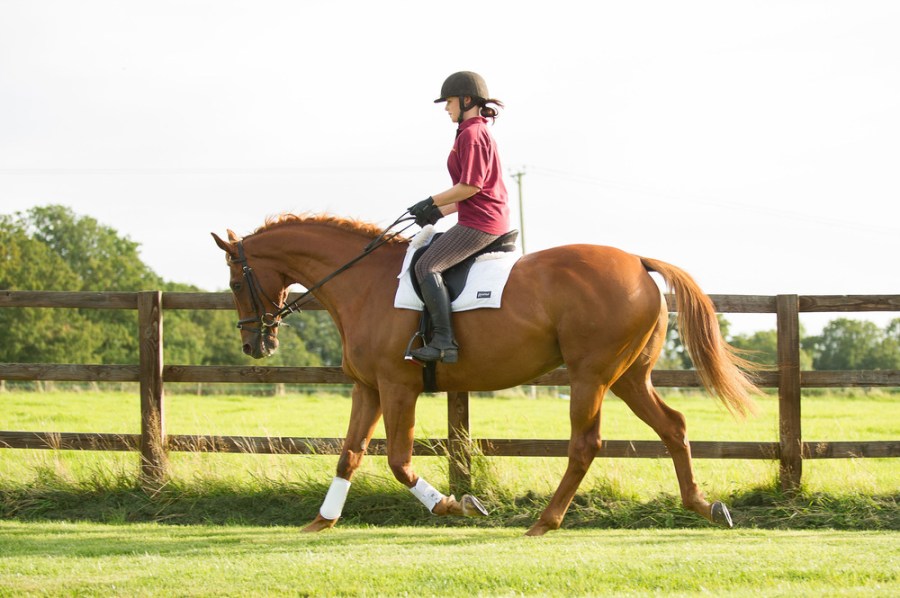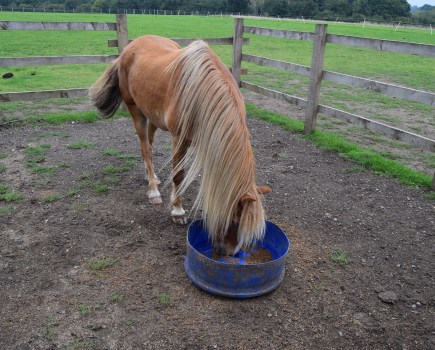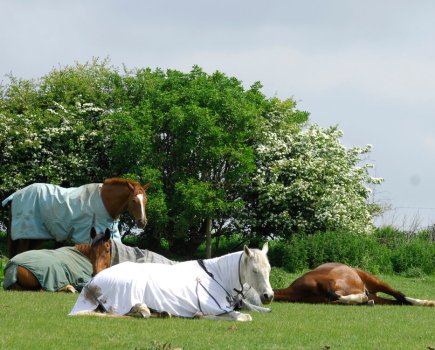Is your hose labelled as grumpy, a bad doer, a fussy eater? Does he become tense or nippy when having his girth tightened?
If so he may be suffering from a gastric ulcer, which can negatively affect his weight, condition, general health and comfort when riding and/or training.
Sadly, gastric ulcers are often misdiagnosed. At Moorcroft Equine Rehabilitation Centre we feel duty bound to solve the problem of gastric ulcers for the long term to ensure that horses don’t suffer again from this condition as it can often recur.
In fact, 80% of the horses who arrive at Moorcroft from the racing industry suffer from this debilitating issue.
The first step is not to leave the diagnosis or results to guesswork, so we often have a horse gastroscoped (a small camera is inserted into the horse’s stomach allowing pictures to be taken at close range), with the results helping us to improve his management.
If stomach ulcers are seen we begin treatment using pure aloe vera juice administered by mouth using a syringe. Giving it via the feed may cause it to lose some of its effect as it can be absorbed by the food.
We always use pure unaltered aloe vera juice such as Forever Living which is both affordable and effective. There are many watered down versions on the market that may not have the same effect, so be careful what you buy.
Following this treatment programme our vet repeats the gastroscope process eight weeks later.
The management system for those weeks consists of 125ml of pure aloe vera juice twice a day, plenty of fibre in the diet, and not overfacing the horse with work that he can’t handle, or stressing him in any other way.
Case study: ‘Buddy’s behaviour was dull, lifeless and at times aggressive, especially when girthing up’
My Buddy (pictured top) is a seven-year-old ex-racehorse who arrived at Moorcroft after his racing career had ended.
He was in need of care, and clearly had many symptoms of gastric ulcers including:
- Not eating well, resulting in weight loss
- Not grazing happily as horses should
- Box walking
- Lameness and a sore back.
Buddy’s behaviour was dull, lifeless and at times aggressive, especially when girthing up — he was generally a very unhappy horse.
A gastroscope by the vet confirmed the ulcer and a complete change of management was put in place including:
- Ad-lib hay when stabled and lots of turnout on good grazing
- No stress
- Time off work.
- A high-fibre diet consisting of 80% roughage in the form of hay, haylage and grass, plus high-fibre cubes with chaff to provide what the horse’s gut needs
- A course of pure, natural aloe vera juice fed orally via a syringe for six weeks
- His sore back was also investigated and treated, as was his lameness.
While these big changes were being made to Buddy’s management and life, working him would have been counter productive.
However, once his gut health started to improve, his back was less sore and he was sound again, he began working on long-reins to help strengthen his back and get him ready to carry a rider.
His condition improved daily, and it was so rewarding to see a happy, healthy horse emerging.
His next gastroscope showed a great level of healing – confirmation of the right course of action. This was expected, given that so many of his symptoms had gone and he was looking much better.
Buddy has now found a very good home. He’s sound and happy and is working at low level dressage and hacking, which he loves.
It was a privilege to be a part of his life and help him become healthy and pain-free. Moorcroft visits him every year in his new home and he’s thriving!









